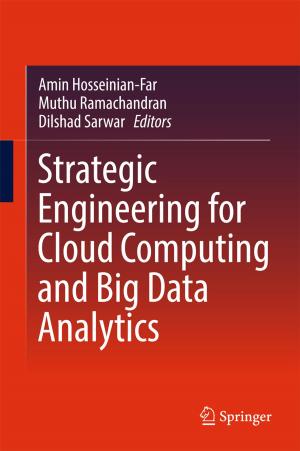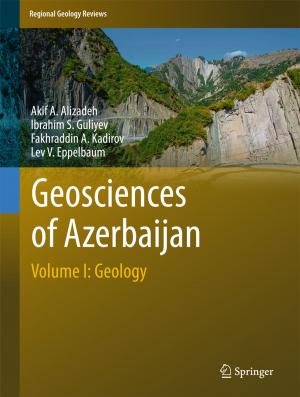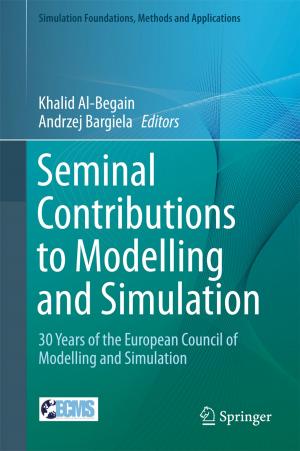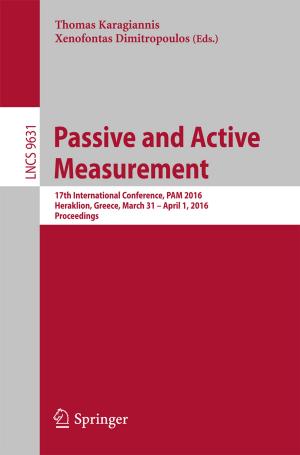Introduction to Turbulent Dynamical Systems in Complex Systems
Nonfiction, Science & Nature, Mathematics, Mathematical Analysis, Applied| Author: | Andrew J. Majda | ISBN: | 9783319322179 |
| Publisher: | Springer International Publishing | Publication: | September 14, 2016 |
| Imprint: | Springer | Language: | English |
| Author: | Andrew J. Majda |
| ISBN: | 9783319322179 |
| Publisher: | Springer International Publishing |
| Publication: | September 14, 2016 |
| Imprint: | Springer |
| Language: | English |
This volume is a research expository article on the applied mathematics of turbulent dynamical systems through the paradigm of modern applied mathematics. It involves the blending of rigorous mathematical theory, qualitative and quantitative modeling, and novel numerical procedures driven by the goal of understanding physical phenomena which are of central importance to the field. The contents cover general framework, concrete examples, and instructive qualitative models. Accessible open problems are mentioned throughout.
Topics covered include:
· Geophysical flows with rotation, topography, deterministic and random forcing
· New statistical energy principles for general turbulent dynamical systems, with applications
· Linear statistical response theory combined with information theory to cope with model errors
· Reduced low order models
· Recent mathematical strategies for online data assimilation of turbulent dynamical systems as well as rigorous results for finite ensemble Kalman filters
The volume will appeal to graduate students and researchers working mathematics, physics and engineering and particularly those in the climate, atmospheric and ocean sciences interested in turbulent dynamical as well as other complex systems.
This volume is a research expository article on the applied mathematics of turbulent dynamical systems through the paradigm of modern applied mathematics. It involves the blending of rigorous mathematical theory, qualitative and quantitative modeling, and novel numerical procedures driven by the goal of understanding physical phenomena which are of central importance to the field. The contents cover general framework, concrete examples, and instructive qualitative models. Accessible open problems are mentioned throughout.
Topics covered include:
· Geophysical flows with rotation, topography, deterministic and random forcing
· New statistical energy principles for general turbulent dynamical systems, with applications
· Linear statistical response theory combined with information theory to cope with model errors
· Reduced low order models
· Recent mathematical strategies for online data assimilation of turbulent dynamical systems as well as rigorous results for finite ensemble Kalman filters
The volume will appeal to graduate students and researchers working mathematics, physics and engineering and particularly those in the climate, atmospheric and ocean sciences interested in turbulent dynamical as well as other complex systems.















